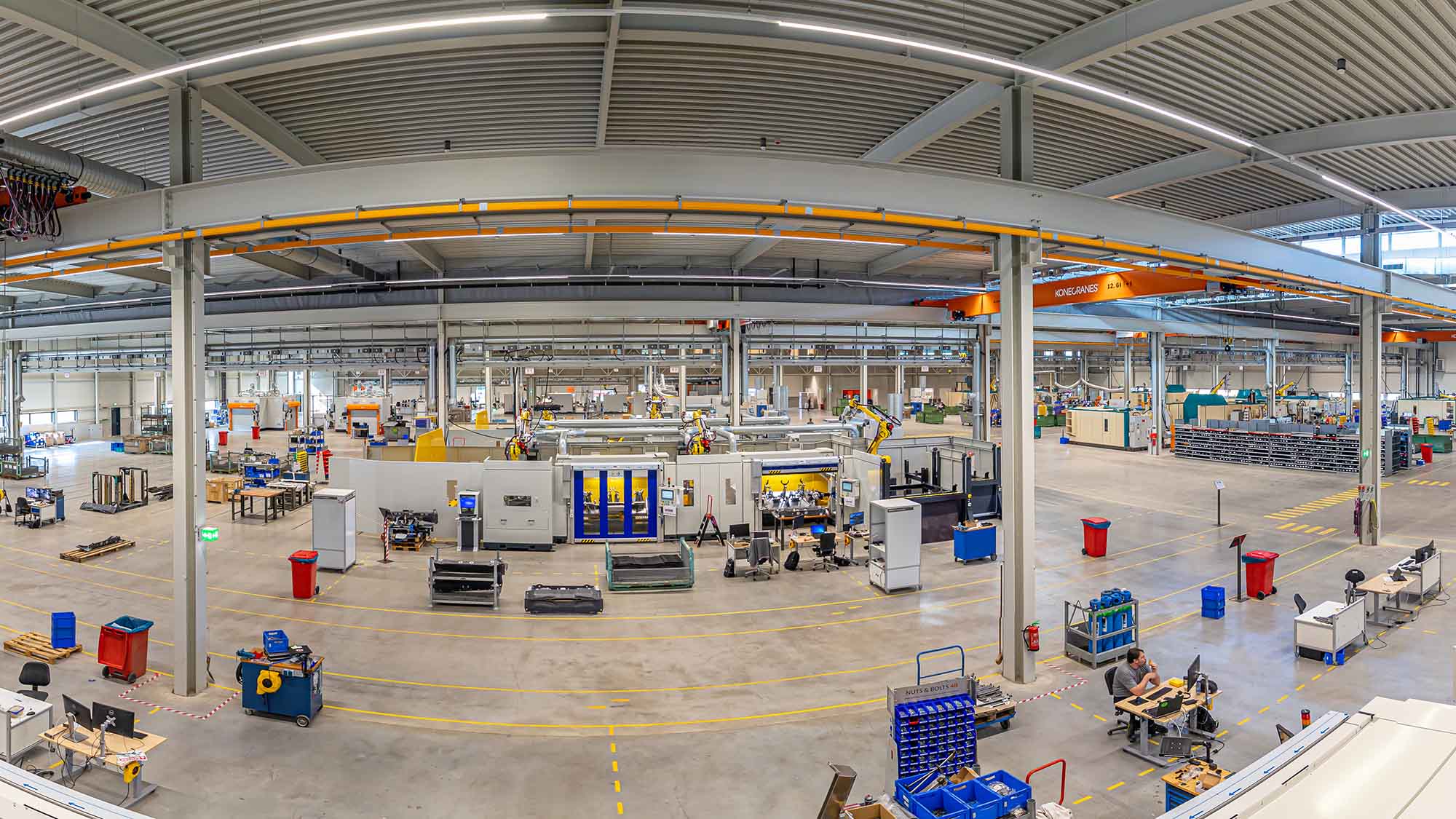AWL is a private company with over 600 employees worldwide. As a system integrator, AWL delivers added value as a specialist in designing and constructing smart (modular) machines. With branches in the Netherlands, the Czech Republic, China, Mexico, the United States and the United Kingdom. AWL guarantees their customers’ global productivity through intelligent and reliable solutions in the field of high-end automation, robotization, machine vision, and joining technologies.
Easy Engineering: What are the main areas of activity of the company?
AWL: Our strength lies in three disciplines: joining technologies, (logistics) automation and assembly techniques. Our portfolio includes laser welding, arc welding, resistance welding, glued joints, vision systems, product handling, quality control and traceability.
E.E: What’s the news for 2021 about new products and the ranges of products?
AWL: M-Line
The keyword for AWL is modularity. We manufacture and develop machines that are created out of modules. We call these M-line Machines. This year we expanded the platform. We adapted different jigs widths and applied them to many products (from 2.2 meters to 2.5 meters). We even delivered to North America and adapted their UL standards.
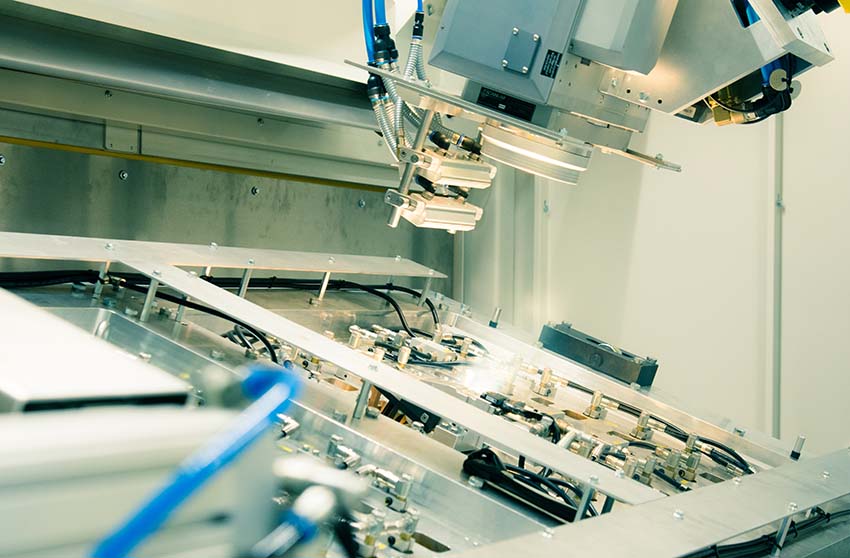
Qube
Qube is our cobot (collaborative robot) welding cell. Qube will make it easier for companies to weld small batches automatically and learn how to weld new products. Together with OMRON, we made some follow-up results to expand this product in the broader market.
Rosi
Rosi (Robotic Singulation) is our newest logistics solution that we are implementing for the sorting or picking of various products, items, and packages. Rosi is a robot that is relatively easy to transport. It’s portable. You can easily pick it up, put it down and connect it. We integrated machine vision and gripper technology for random picking and depalletizing. With Rosi, we believe that we can deliver innovation for the logistic market. In particular for the coming years. You can buy a standard machine and add the system integration technology you need for your automation.
E.E: At what stage is the market where you are currently active?
AWL: At AWL, we focus on the automotive, metal processing and logistics industries, where high levels of automation and a high degree of flexibility are essential.
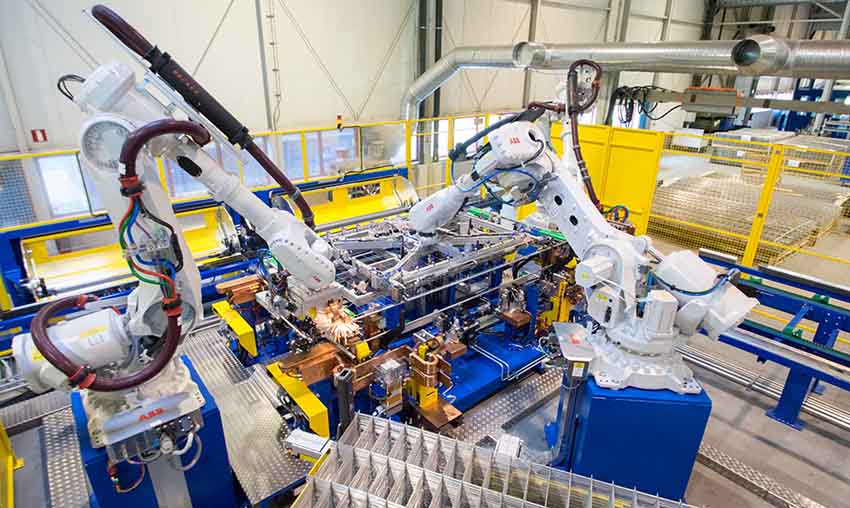
E.E: What can you tell us about market trends?
AWL: By following market trends, listening to our customers, using our common sense and expertise, we can offer answers and solutions for the challenges facing us all. We do this by carrying out innovation projects and by working on open innovation. For us, open innovation means actively participating and collaborating in innovation projects with customers, suppliers, partners, universities, and knowledge institutes.
E.E: What are the most innovative products marketed?
AWL: Laser welding fuel cells
In this era of emerging renewable energies, an essential innovation for AWL is in the production of bipolar plates for hydrogen fuel cells. Fuel cells convert hydrogen gas to electricity and can be used in E-mobility as an energy source for electric vehicles and residentiary applications to generate electricity and heat in our homes.
Bipolar plates form the heart of a fuel cell. They are assembled from thin metal plates, precision-stamped and then laser welded at high speed. The long experience of AWL in laser welding and production automation is a great benefit in developing this challenging production process. High-quality demands must be met, such as gas-tightness for hydrogen and close tolerances. Our highly experienced engineers, welding process and machine vision experts develop the clamping, welding, testing and logistic processes to a completely automated production machine in close cooperation with our customers.
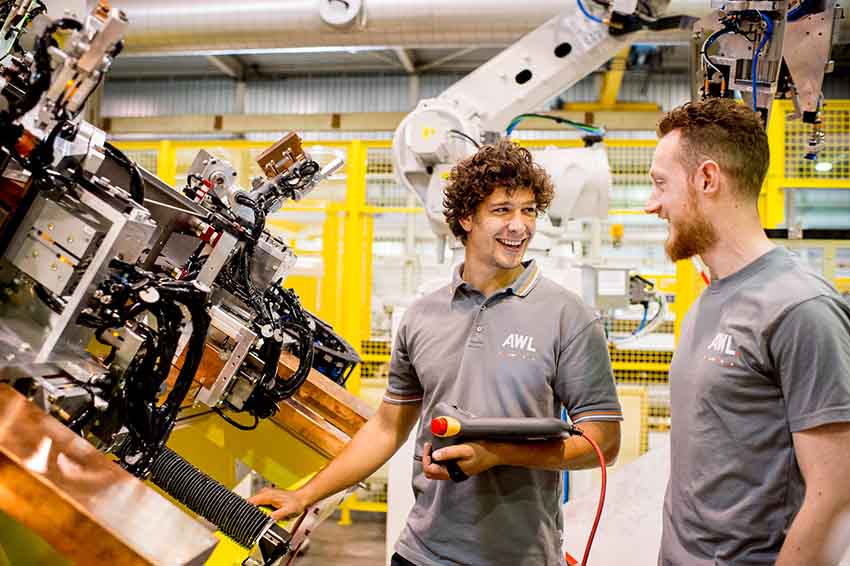
Depalletization of Randomly Mixed SKUs
Depalletization is an essential and critical process in distribution and fulfillment environments. AWL provides automated solutions for unstacking pallets that can run 24/7. Using vision technology and AI software, we create robotic solutions that can accommodate mixed parts and products.
Our depalletization solution automatically unstacks arbitrarily packaged goods, such as boxes, bags or totes, from pallets. Automating this process provides multiple benefits. It enables you to:
- Reduce and even eliminate repetitive manual tasks;
- Increase output and line speed;
- Improve ergonomics;
- Automate product or label tracking.
E.E: What estimations do you have for 2021/2022?
AWL: From a technology point of view, we have a pretty high expectation of the modular platform. We have to develop that further and broader so that we can deliver a more lean and effective product in a market that goes on and on.
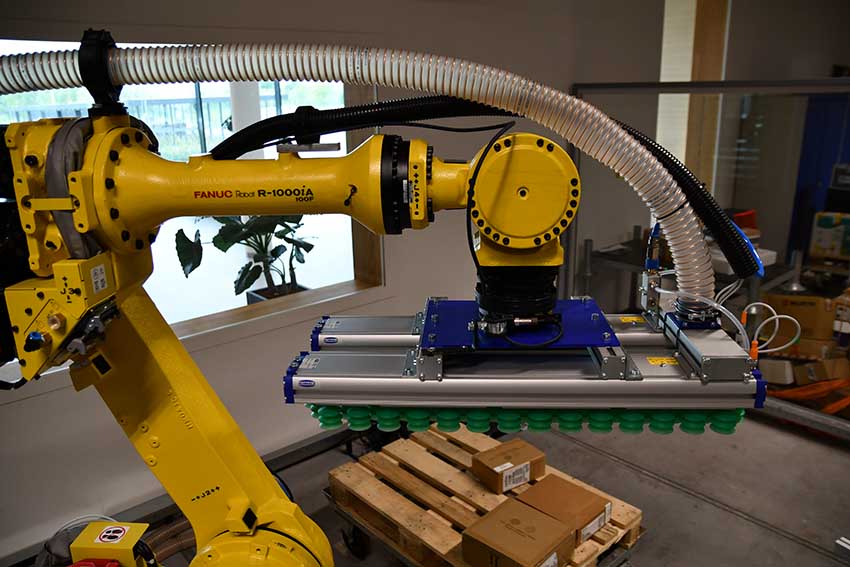
We see that the demand for assembly machines is coming up. Next year we will deliver the first projects in this market with vision-guided robotics. We see that intelligent guided robotic vision is also being applied in the general industry. For example, gripping and hanging parts is an application where that could very well be applied. So that you no longer have fixed jigs, which are designed completely fixed (with a complete fixture), but through intelligent technology, you can randomly and accurately pick up a product part.
Fuel cells are a new development this year. In automotive, we have seen that they have received a significant development. At the IAA (Internationale Automobiel Ausstellung) in Munich, the fuel cell was an essential subject.
For the logistics market, we expect an increase in numbers, and we will have to come up with a product more focused on sorting and singulation. Our next step.
For more information about AWL, see www.awl.nl

